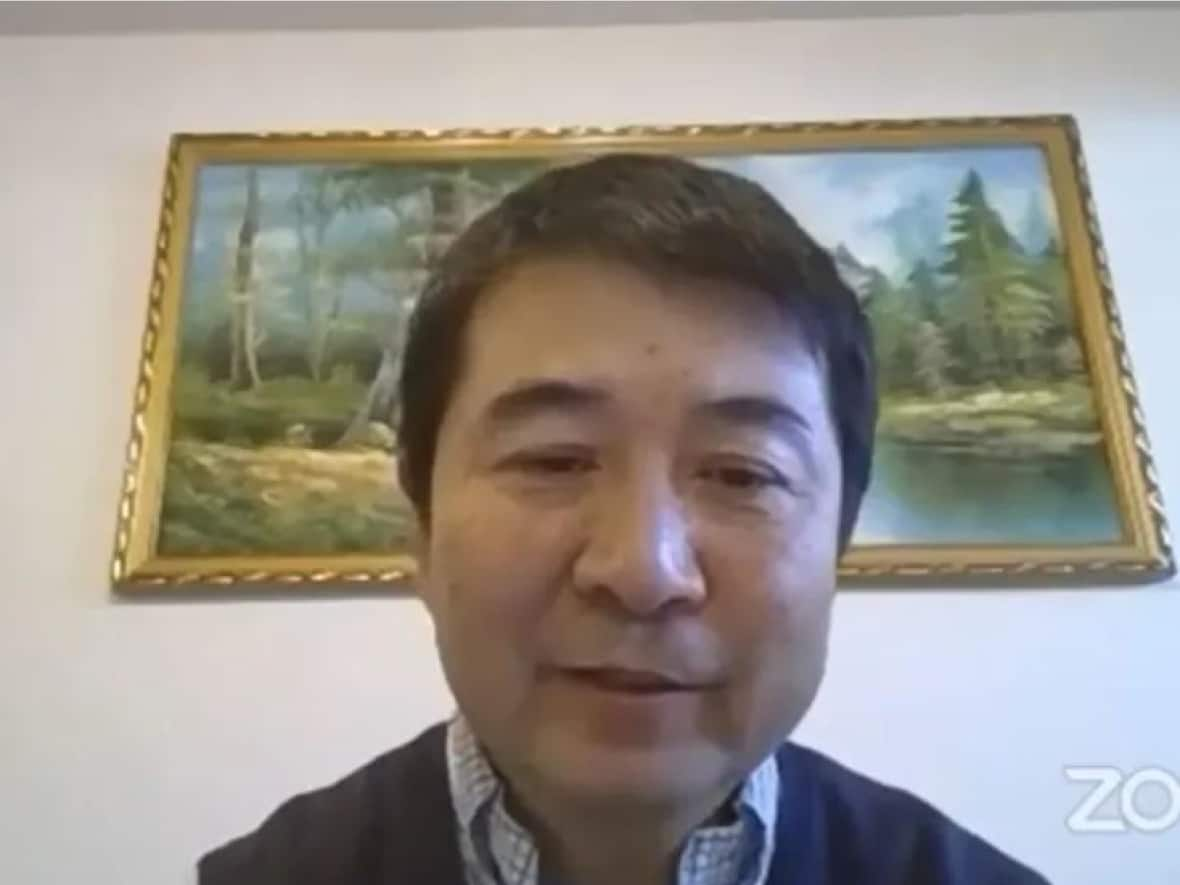CSIS warned space agency about ex-engineer now facing charges: court documents

Canada's spy agency sent multiple warnings to the Canadian Space Agency about Wanping Zheng, a former engineer now accused of negotiating on behalf of a Chinese aerospace company — and even refused to give a presentation at the CSA because it knew Zheng would be there, according to new court documents.
The RCMP charged 61-year-old Zheng last December with breach of trust in a case police say is tied to foreign interference.
According to an affidavit used to obtain search warrants on his phone and email, the Canadian Security Intelligence Service sent three warnings to the space agency about Zheng's "reliability status."
WATCH: Space agency staffer accused of negotiating for Chinese company
Reliability status is a personnel security status within the federal government that is required before an employee can gain access to certain protected information, assets or work sites.
The first CSIS warning came in 2015, although at the time the agency didn't offer many details about its concerns. CSIS also asked the space agency that year if Zheng would have had access to information related to an anti-vibration table — intellectual property belonging to CSA.
CSIS sent two follow-up warnings in March and May of 2016.
The next year, CSA renewed Zheng's security clearance for two years instead of the usual 10 — an effort to monitor Zheng's compliance with CSA internal policies, the documents say.
A spokesperson for the CSA wouldn't comment on the timing of the renewal.
"When concerns about this individual's private activities outside of their employment arose, the CSA took actions, including an internal inquiry and restricting access to information," said CSA spokesperson Andrea Matte.
"We cannot comment further on a matter before the court."
CSIS didn't want Zheng in the room
In September of 2017, CSIS refused to make a presentation to the agency because it knew that Zheng was going to attend.
The documents say CSIS routinely reports on anomalies or irregularities without passing on specific details.
"The purpose of this procedure is to trigger an internal or police investigation without revealing or compromising their intelligence gathering techniques," says the French affidavit.
A spokesperson for CSIS said they would not confirm or deny the specifics of investigations.
"What I can say is that CSIS routinely engages with a variety of stakeholders, including in the private sector, government partners and universities," said Keira Lawson.
"Through these briefings, CSIS advises of potential threats to the security and interests of Canada, and provides unclassified briefings regarding the nature of specific threats."

CSIS's refusal to provide a briefing to CSA with Zheng in the room eventually helped to trigger an internal investigation into Zheng in 2018.
While Zheng was working at the agency, CSA technicians noted the presence of unauthorized software by a foreign company, say the recently filed court documents.
At least one secure file transfer service and a messaging application were identified on the computer, violating internal policy, the documents say.
Zheng was told of the CSA internal review on Dec. 17, 2018 and went on sick leave a few days later.
The space agency went to the RCMP in September 2019 to report that it suspected Zheng had transmitted secret information to a third party.
Zheng resigned in December of that year after 26 years with the agency.
While requesting a search warrant to access Zheng's BlackBerry, police said he communicated with five private companies while at CSA dating back to 2007.
None of the allegations against Zheng have been proved in court.
The search warrant request notes that foreign states are known to target officials with access to privileged information in order to steal intellectual property.
Last month, the federal government filed an application seeking to shield some details of the case from public view.
Under the Canada Evidence Act, a judge can decide whether certain details in a case should be disclosed in open court or protected for national security reasons.
According to documents filed in Federal Court, the government is concerned that "sensitive information or potentially injurious information" will come out during Zheng's criminal trial.
He is scheduled to make an appearance in court next week.


